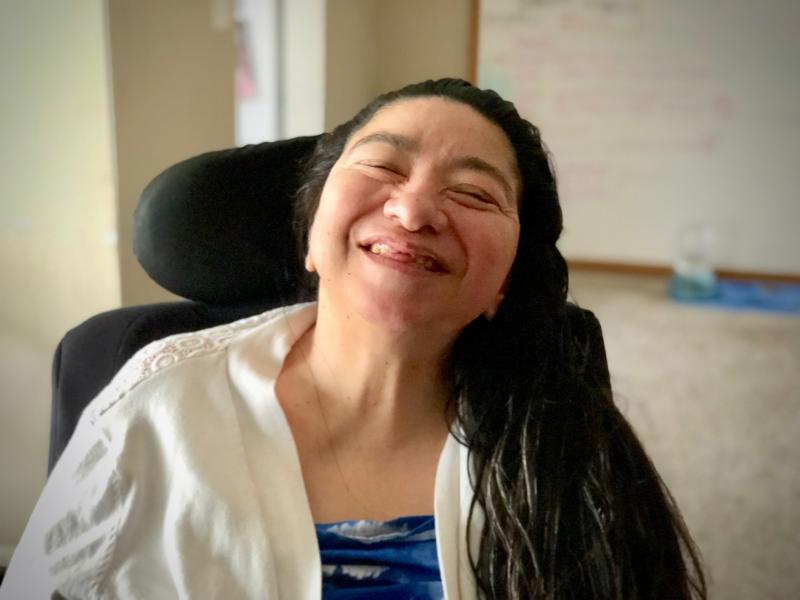To gain a better understanding of the realities that people with intellectual and developmental disabilities face securing and maintaining housing in California I am working with people with I/DD to bring their stories to light. Deborah Moreno’s is the first of these stories.
The first thing you notice when you walk in to Deborah Moreno’s apartment is the collection of pictures of her friends and family that cover the living room walls. Happy people smile at you from every direction. The second thing you notice is the large whiteboard in the dining area that her team use to track her complex medical and care needs twenty-four hours a day, seven days a week. Deborah’s apartment is an inviting and well-organized space.
Deborah has made immense sacrifices to stay in the two-bedroom apartment in Sacramento she moved into eight years ago. Deborah has watched her rent steadily rise, and though she receives a housing subsidy, as a single person living in a two-bedroom apartment, her stipend only covers most of the cost of a one-bedroom.
The nature of Deborah’s disability is such that she requires around the clock care. She must maintain a second bedroom, not for herself, but so that her nighttime direct support professionals have a place to be.
Each month Deborah struggles to pay the seven hundred dollars in rent that is not covered by her subsidy out of her modest Social Security income. She has cut back on anything that might be considered a luxury item, going so far as eating mostly top ramen and canned goods. Her health has suffered as a result of this diet. Her sleep apnea has returned. But to Deborah the largest sacrifice came when she was forced to give up internet service.
Deborah can talk, but her words are difficult for people new to her to understand. Even with great effort on her part, the words come out slowly and garbled. She is unable to have conversations on the phone. The internet was her easiest form of communication with the outside world. Shutting it off meant further isolating herself from the world. Isolating herself from the people and connections to her community that matter most. It also meant that in an emergency situation she has no ability to reach out for help on her own.
Despite these significant hardships Deborah faces to stay in her home, she loves where she lives. She loves her neighborhood, enjoys going out and running errands at the nearby shopping center, going to movies, and most of all, Deborah loves meeting up with her friends.
In the course of our interview Deborah mostly spoke through her direct support professional. But when asked what the most important thing is that she needs to improve her housing situation is she made fiery eye contacted and forced her words out. “For me to be able to afford it.”

Christian McMahon, Communications Specialist, The Arc of California

